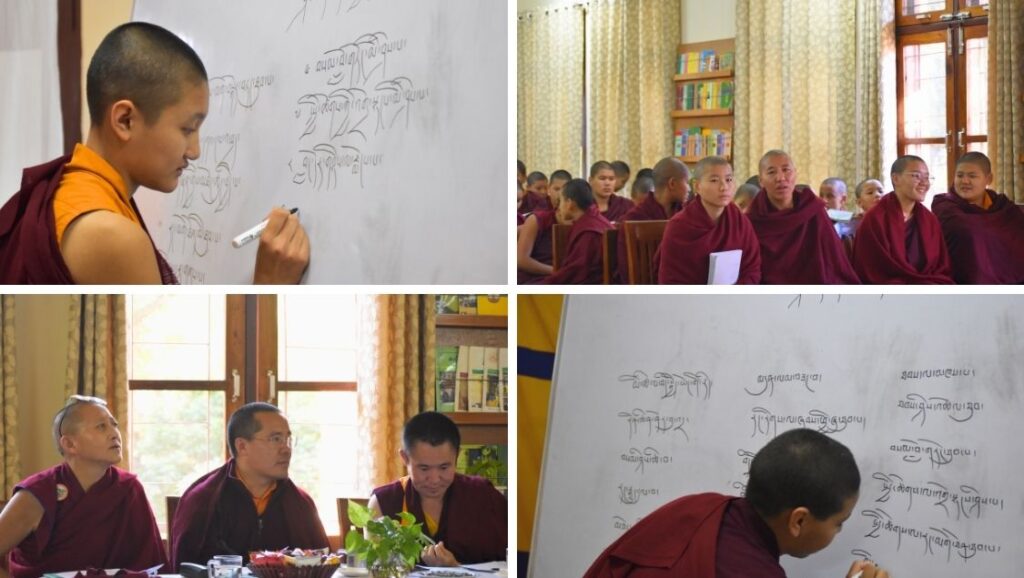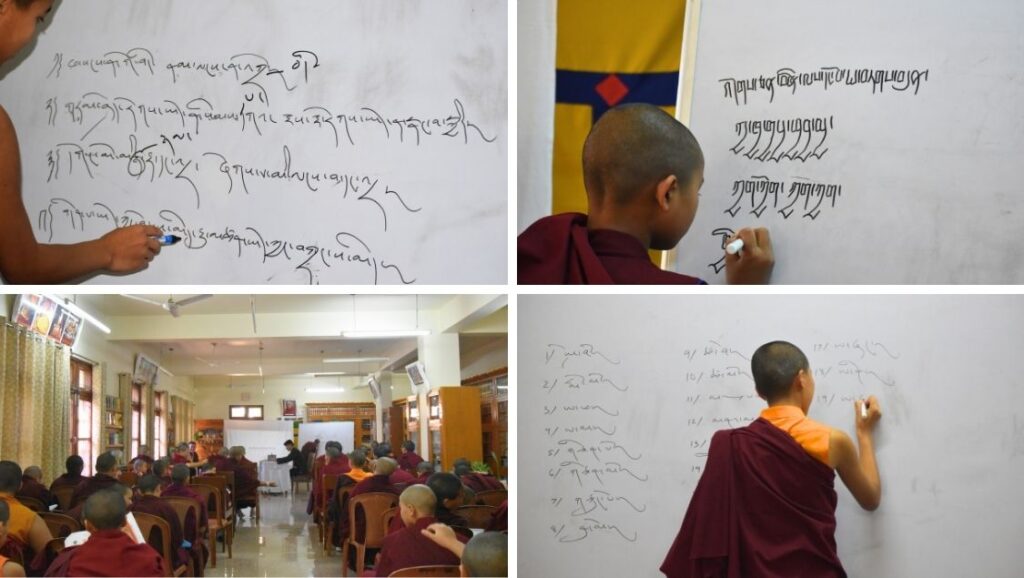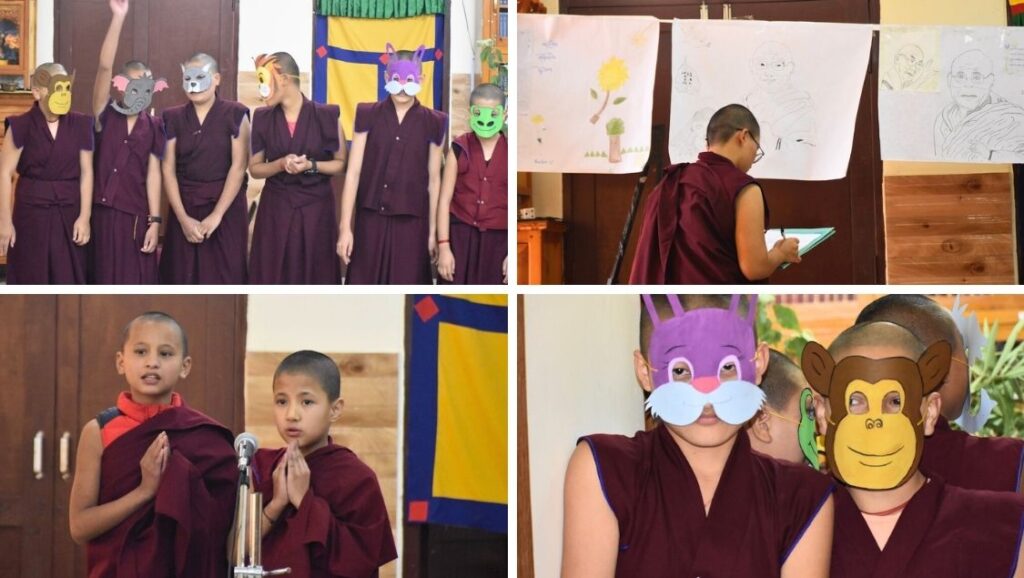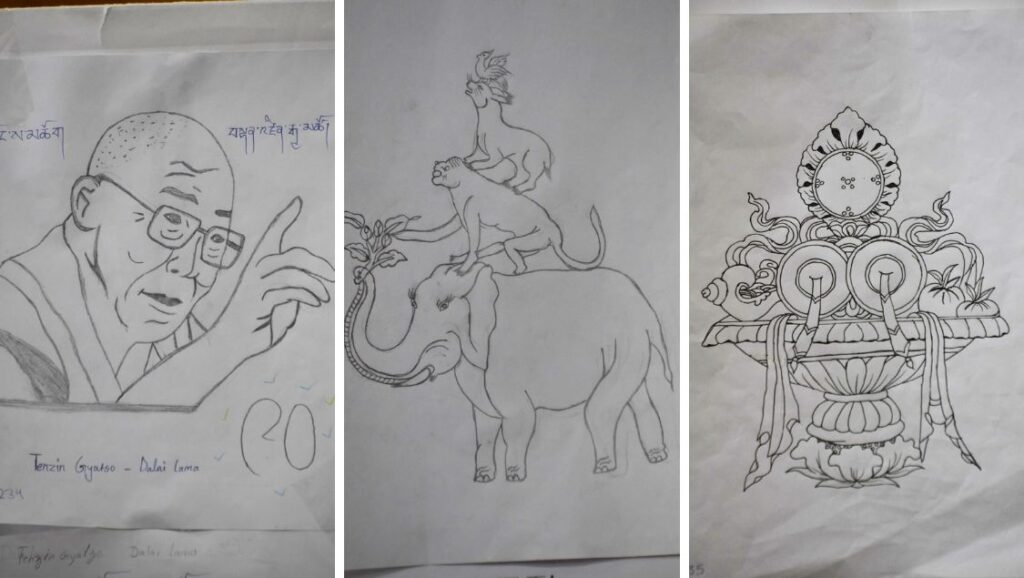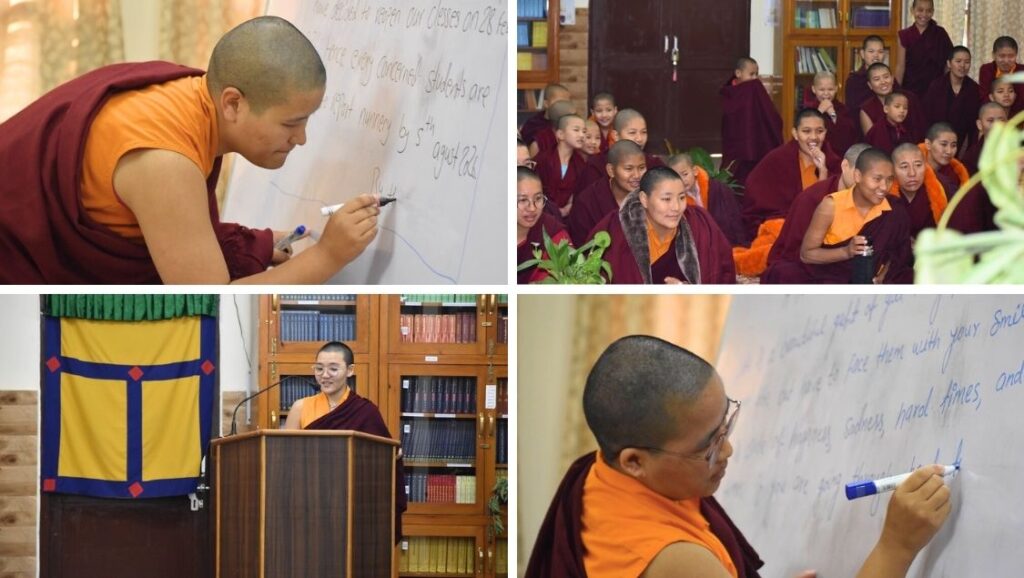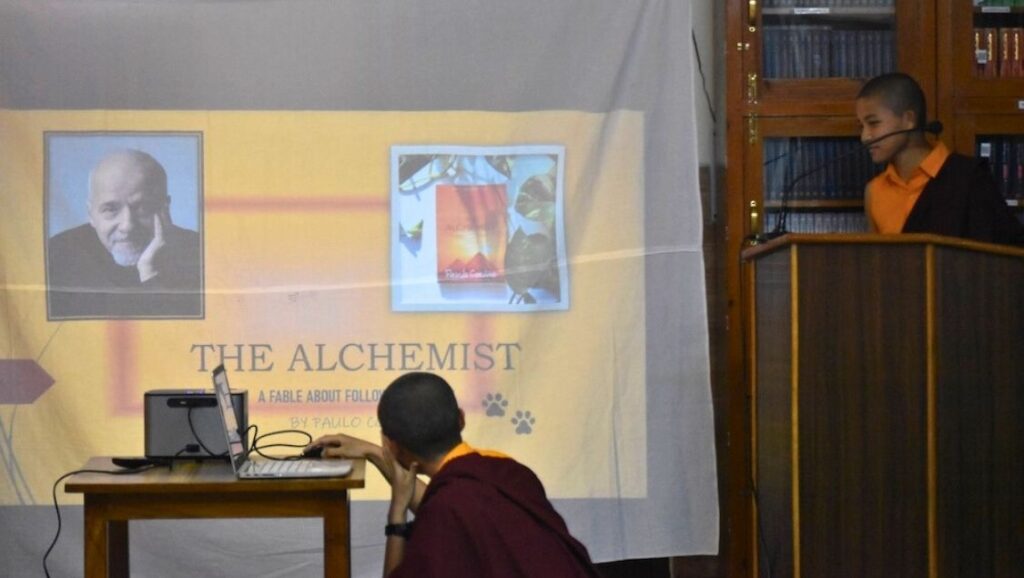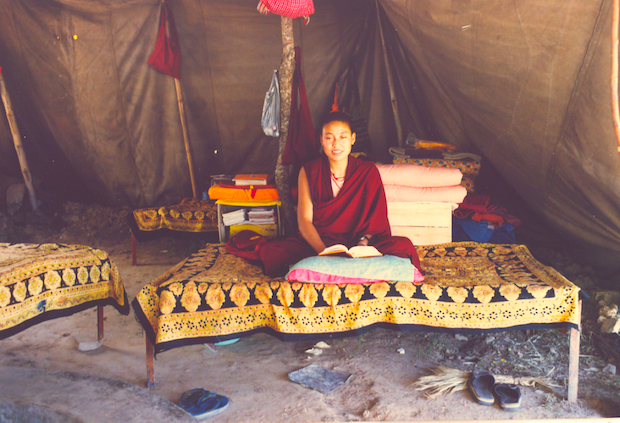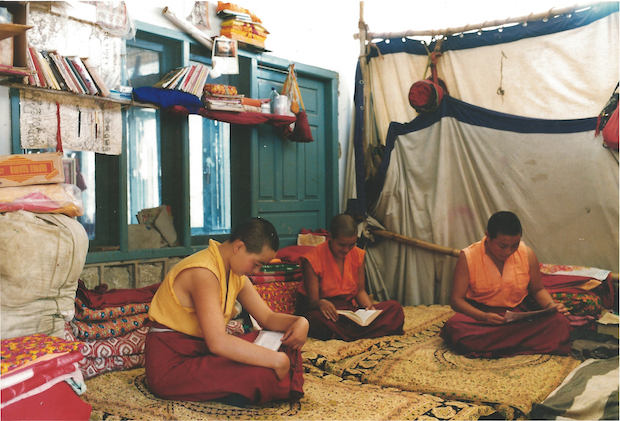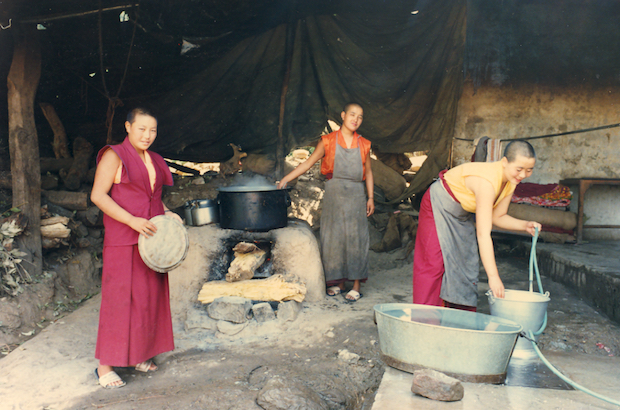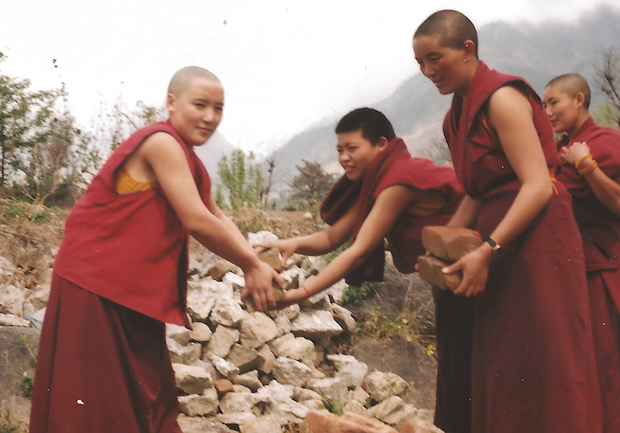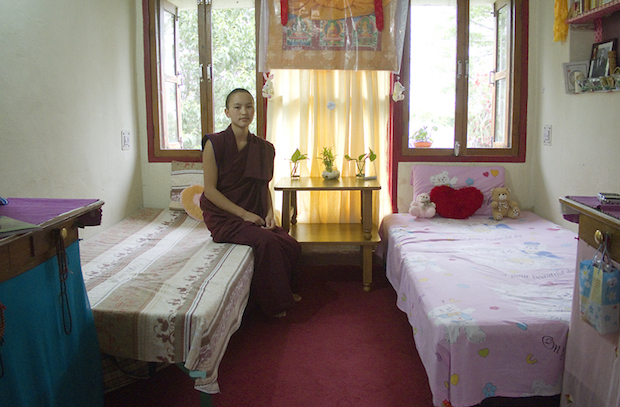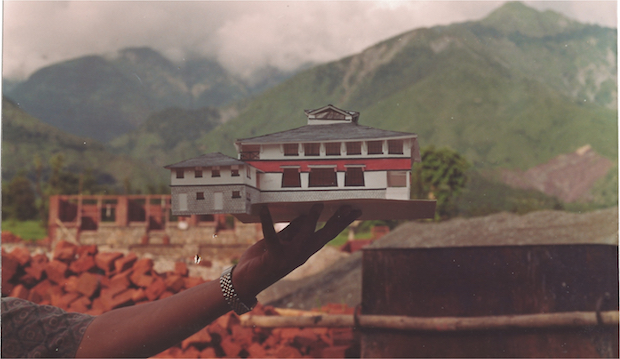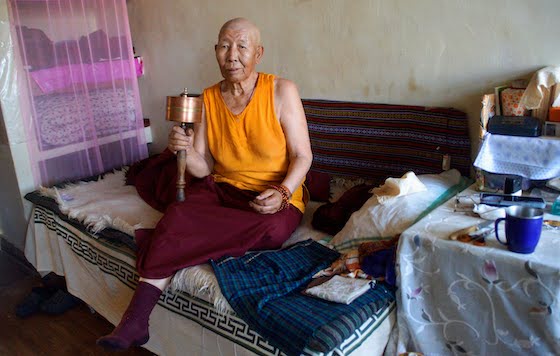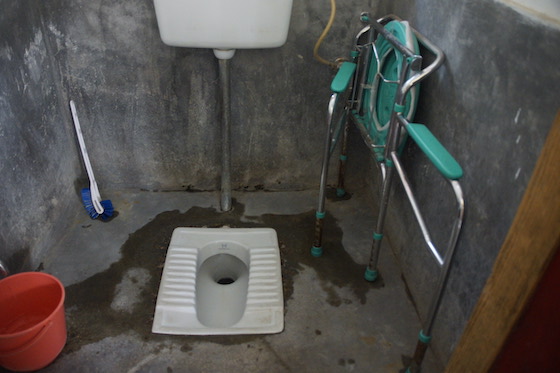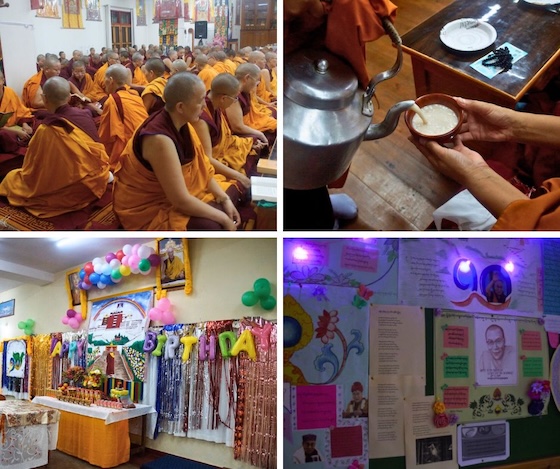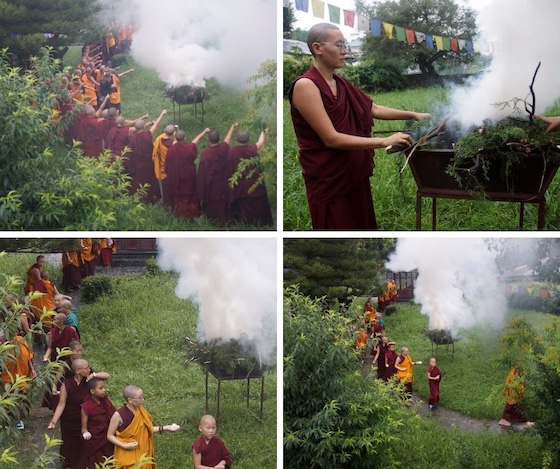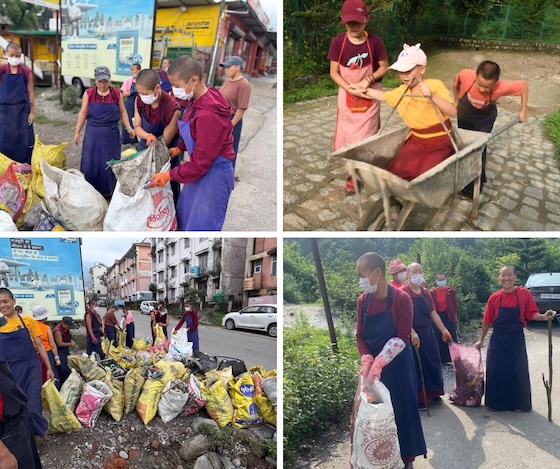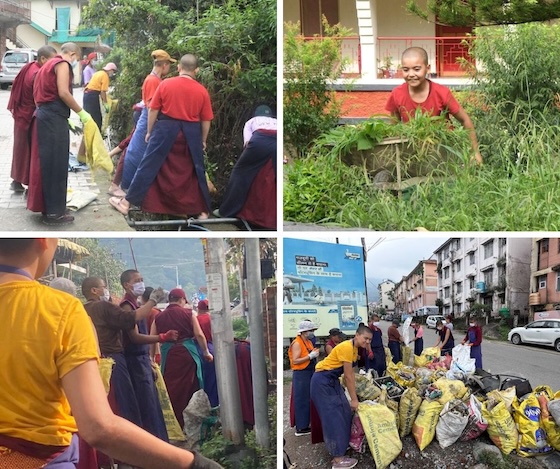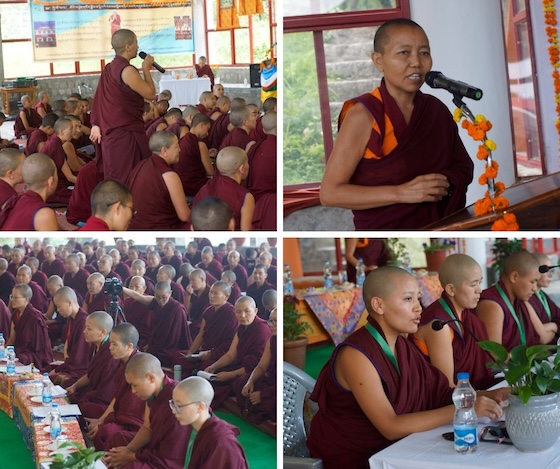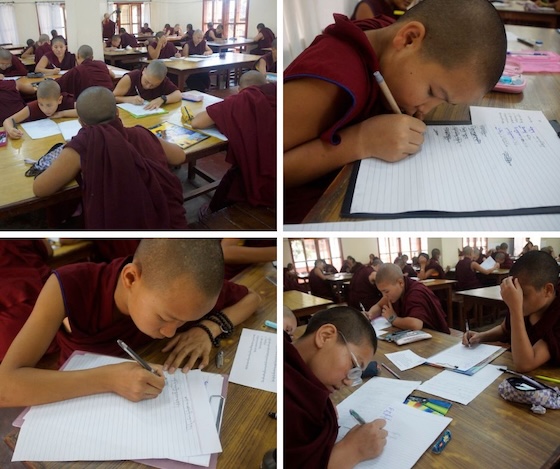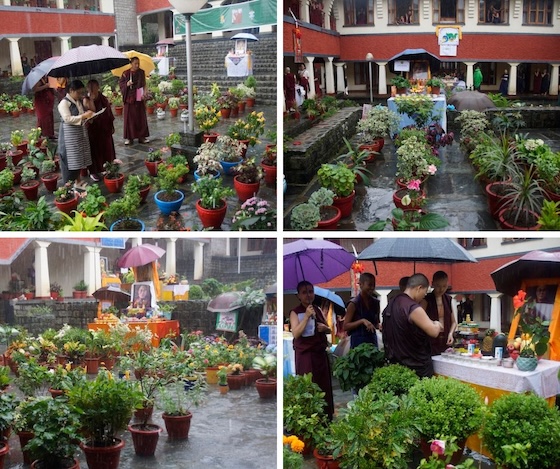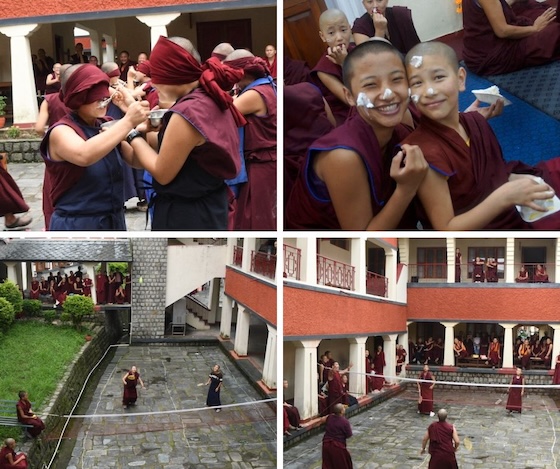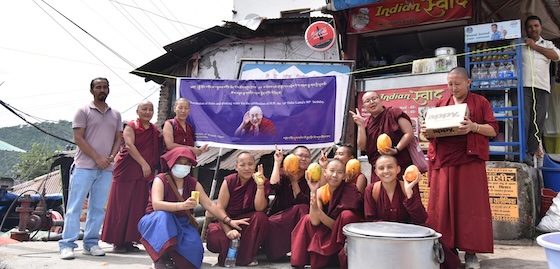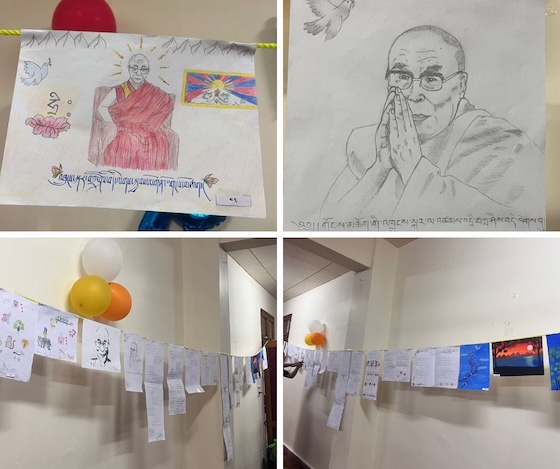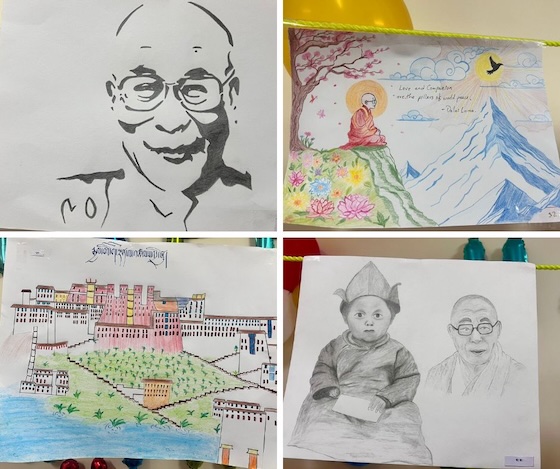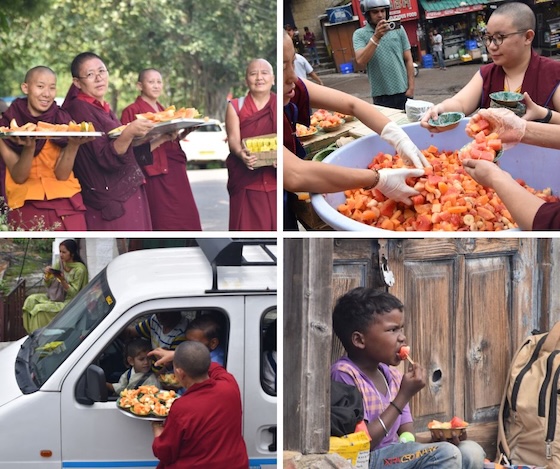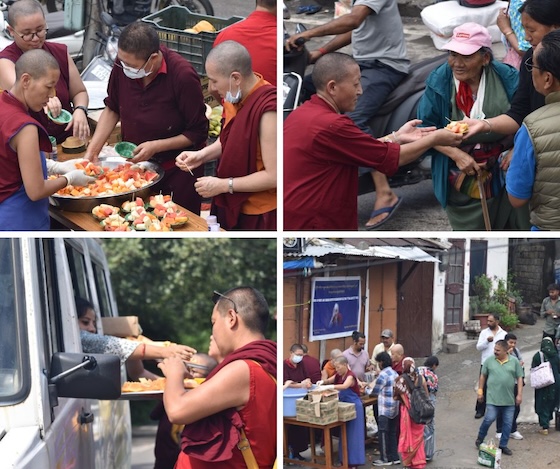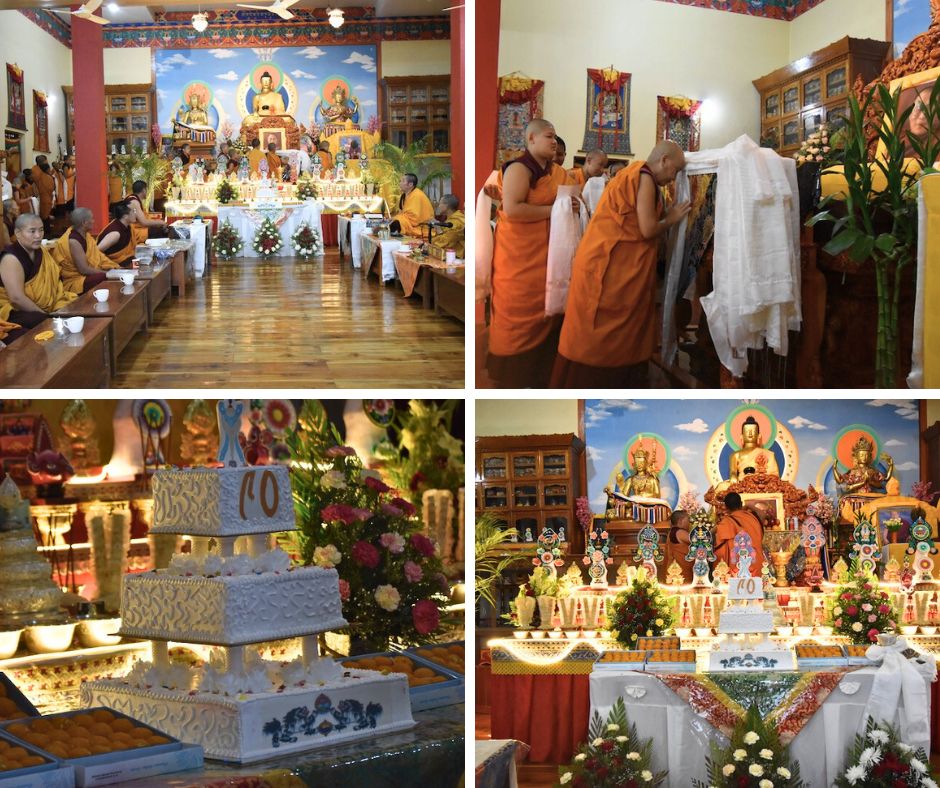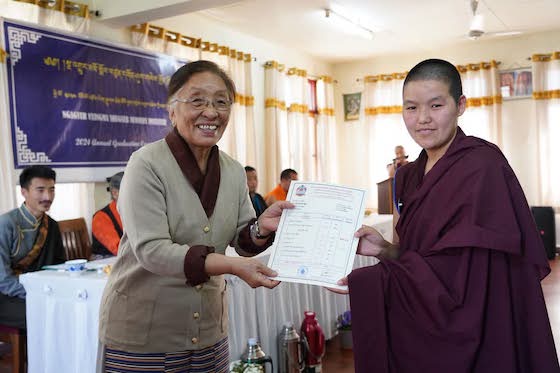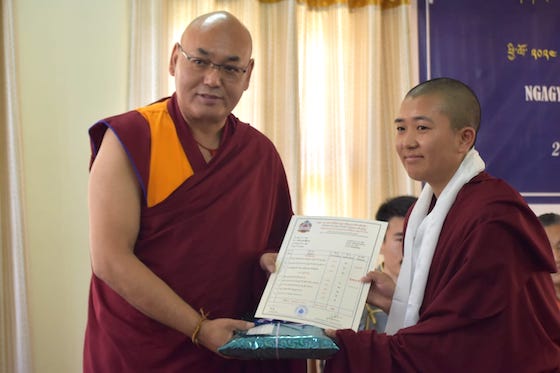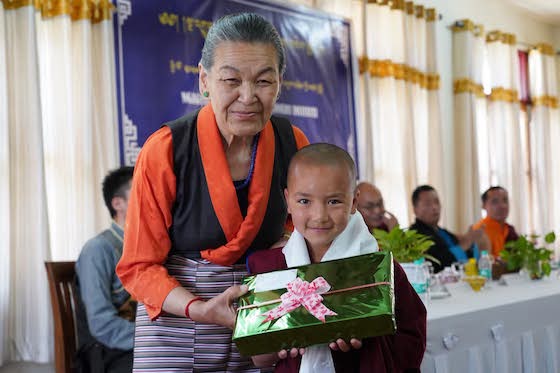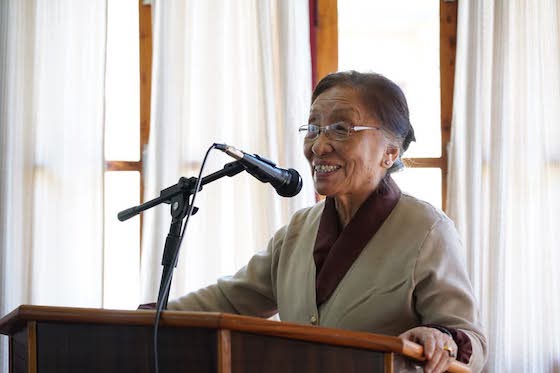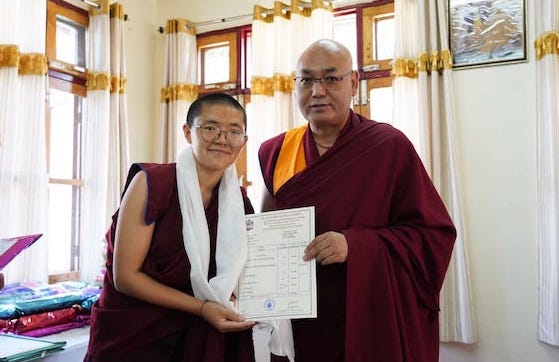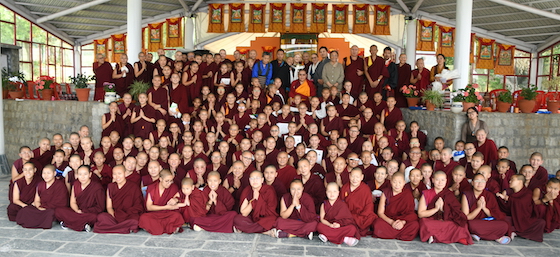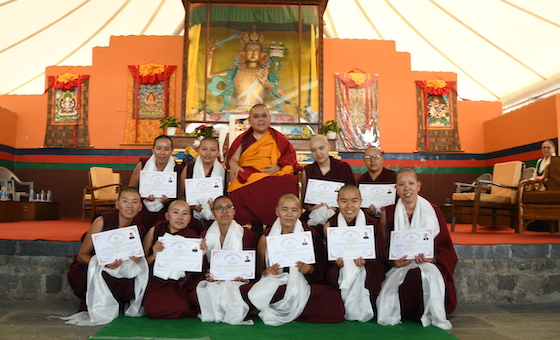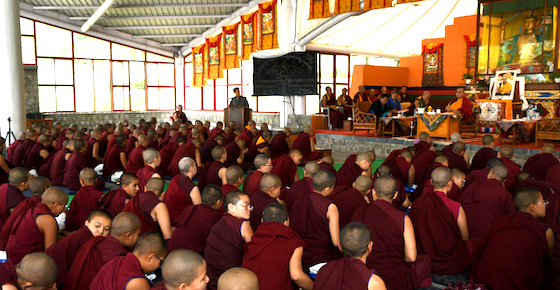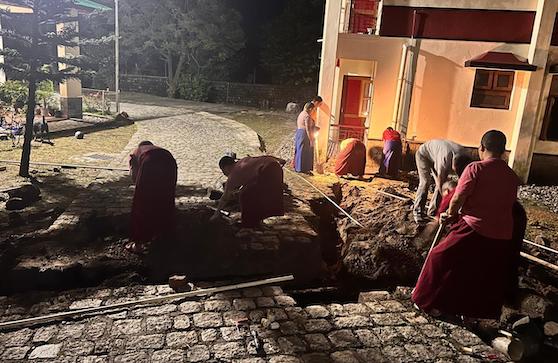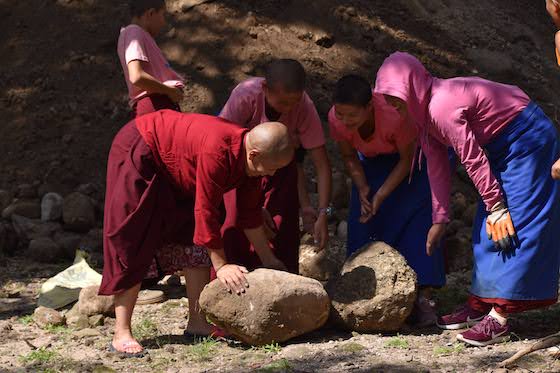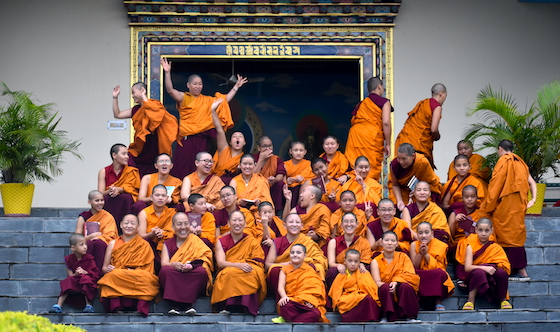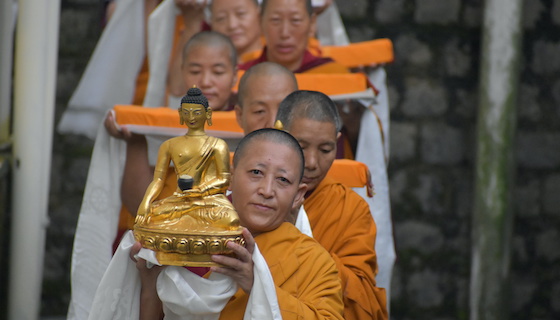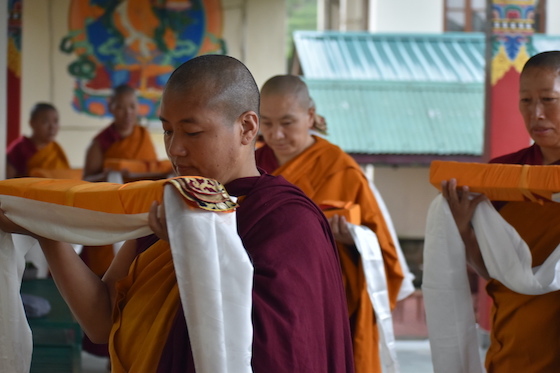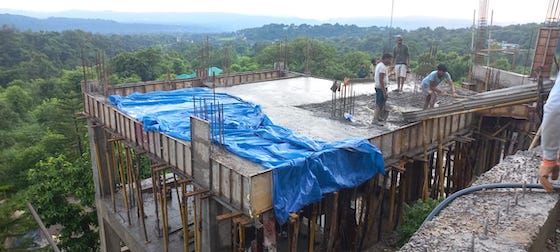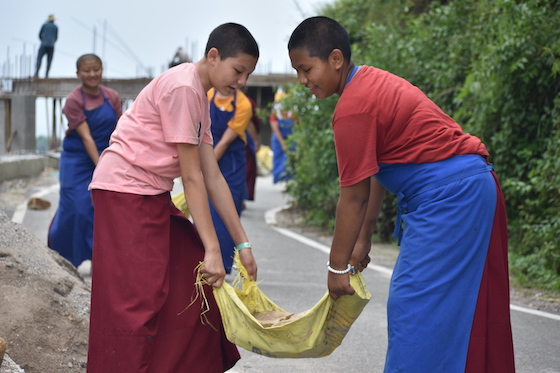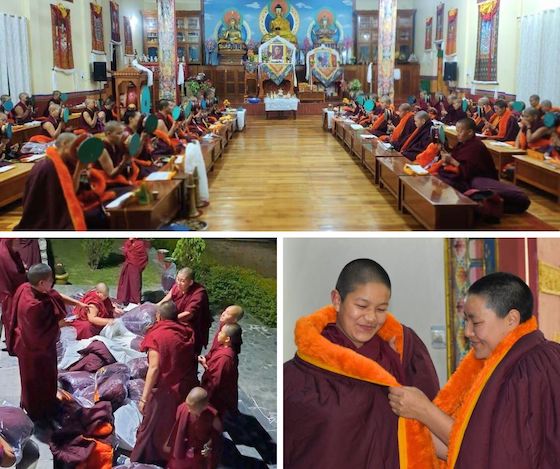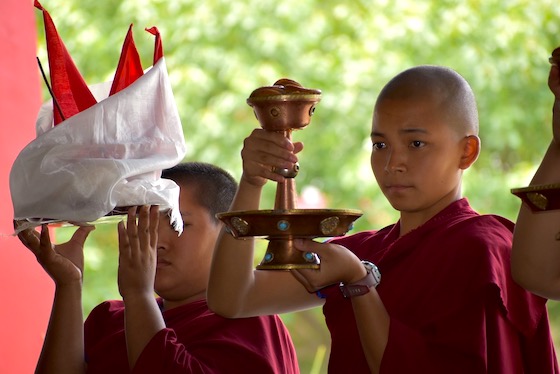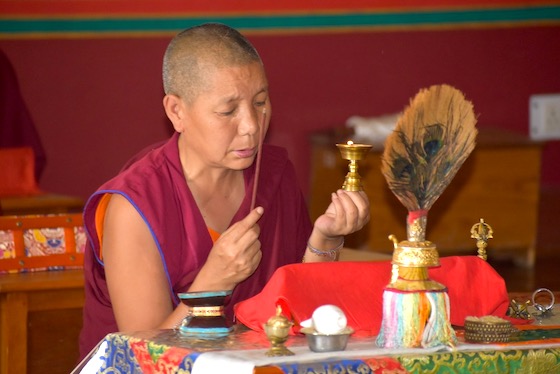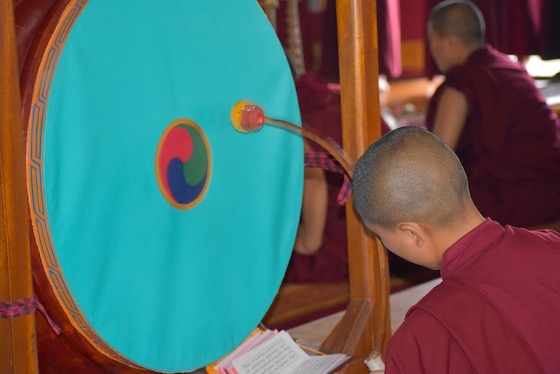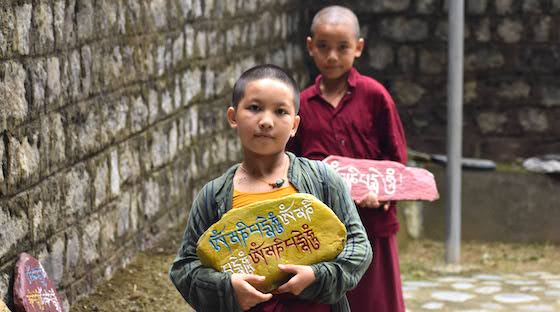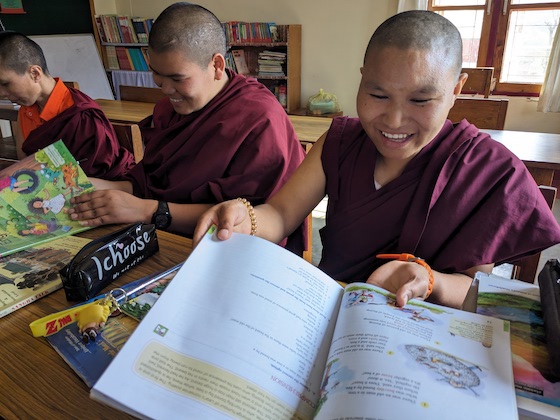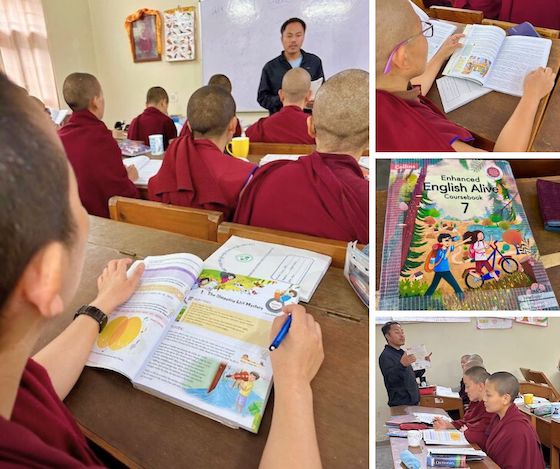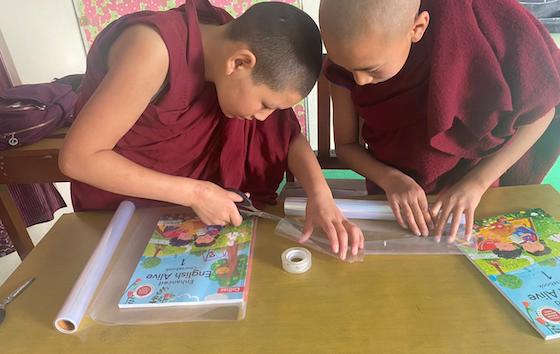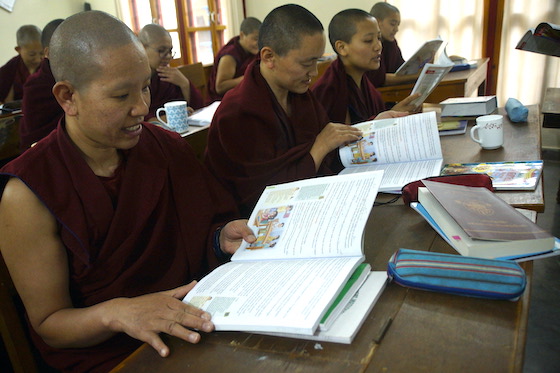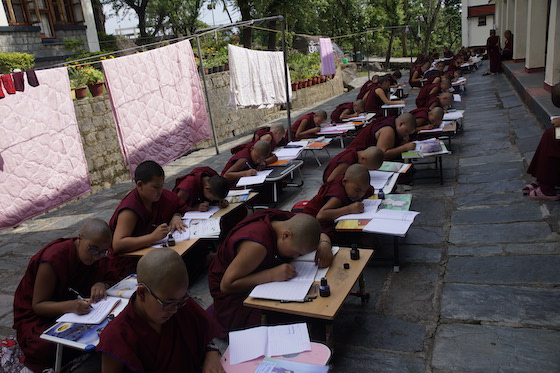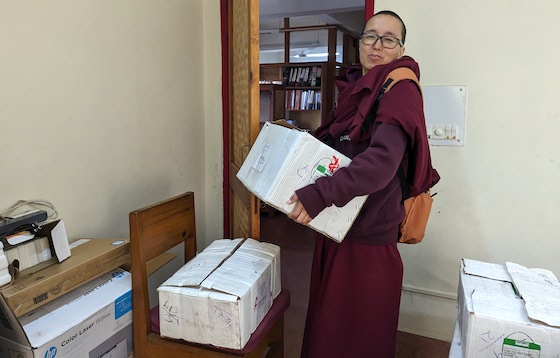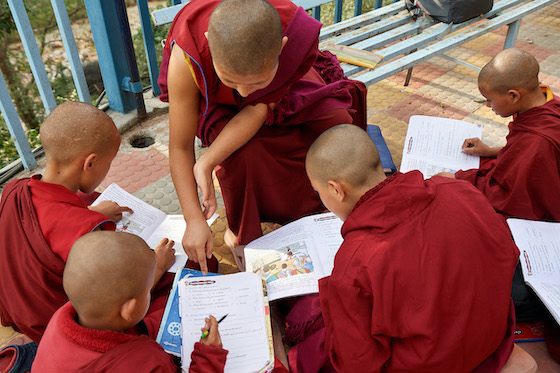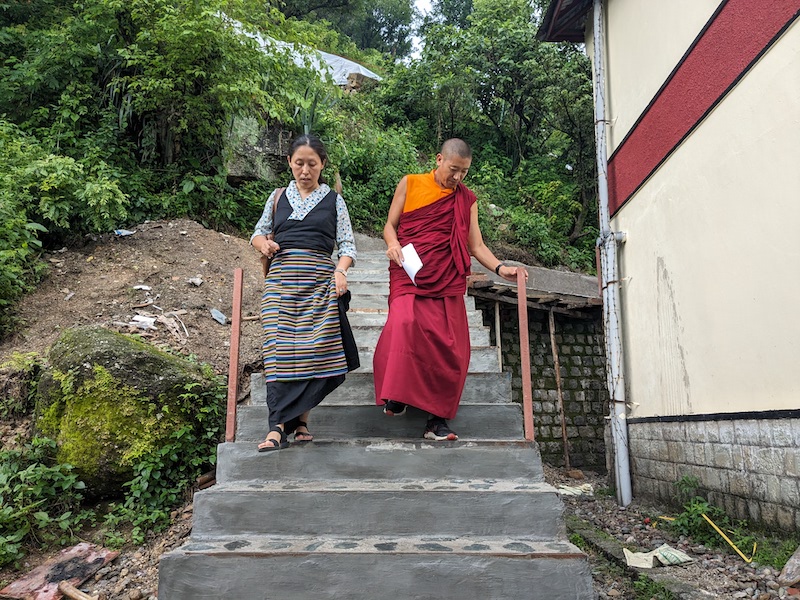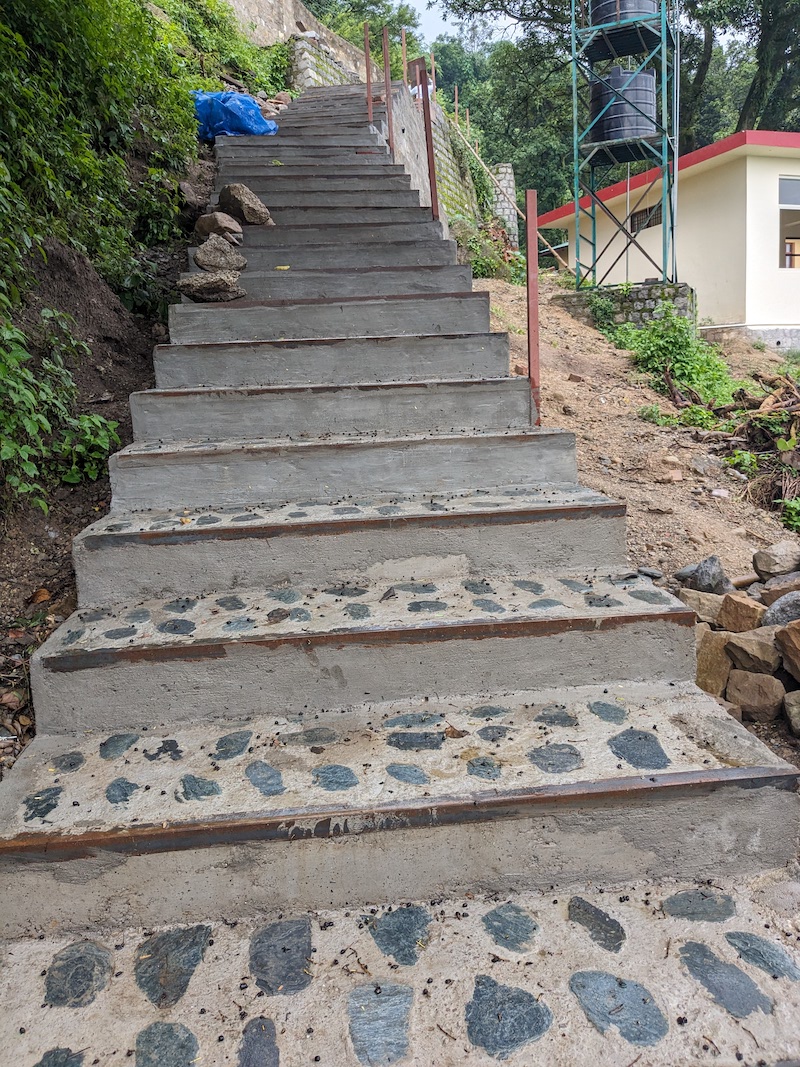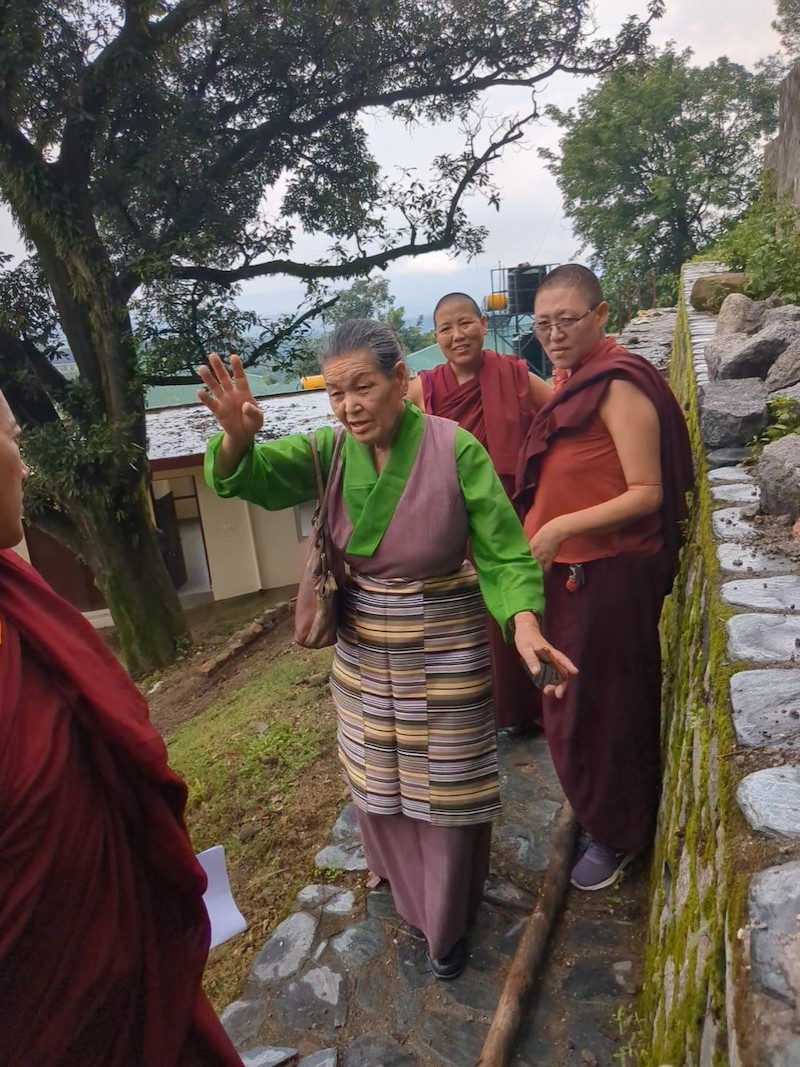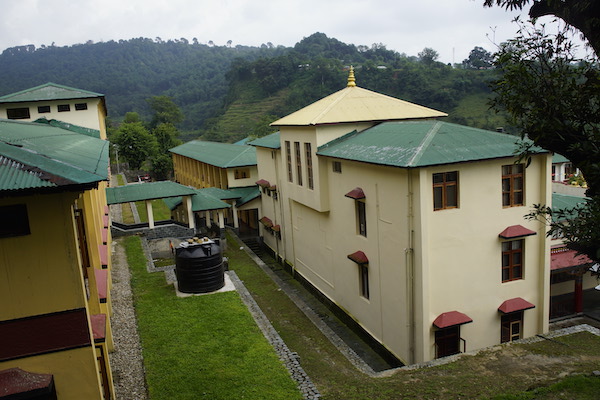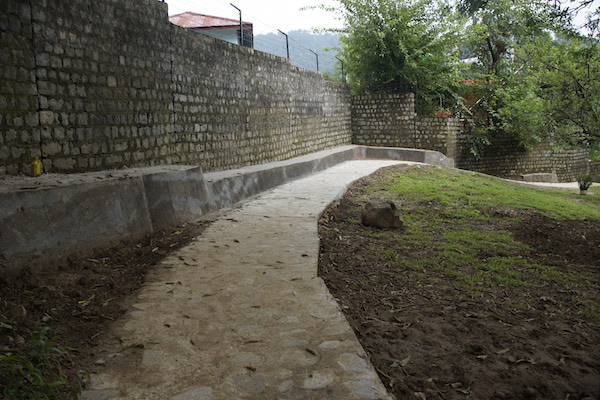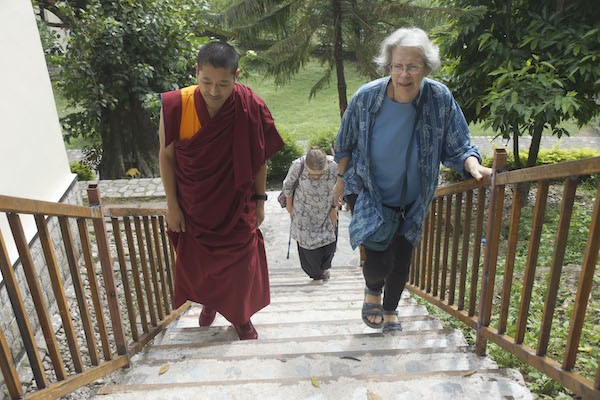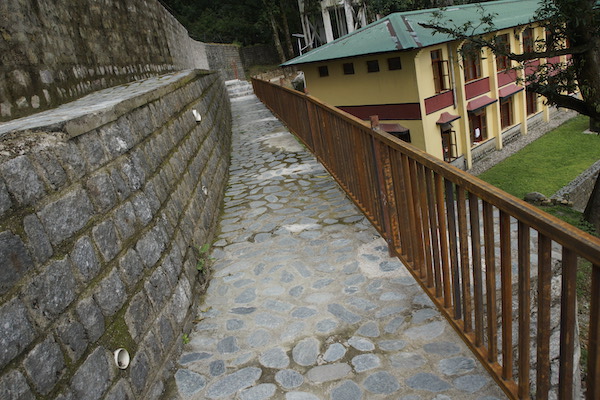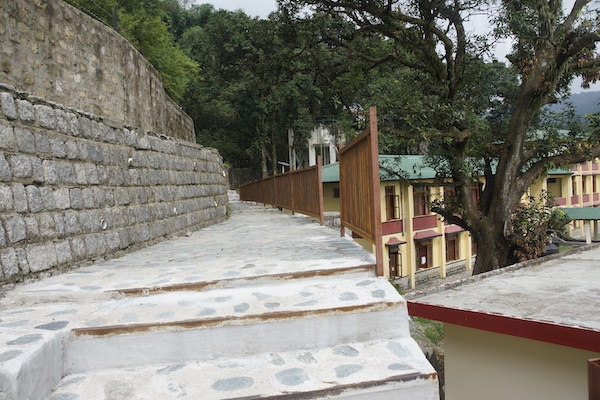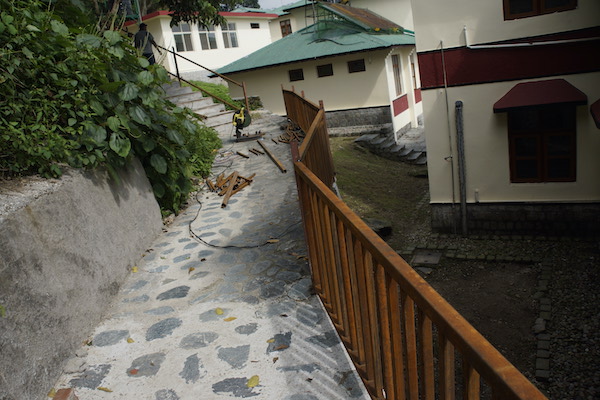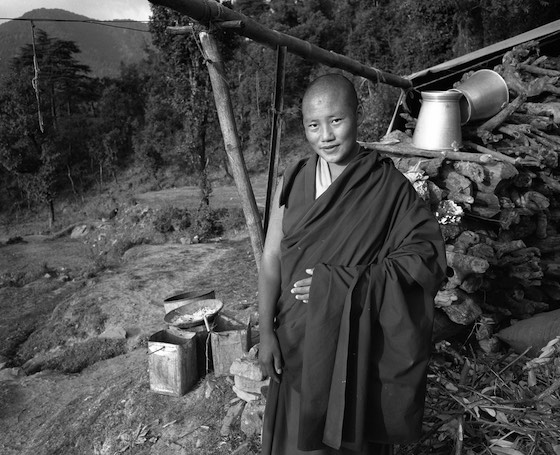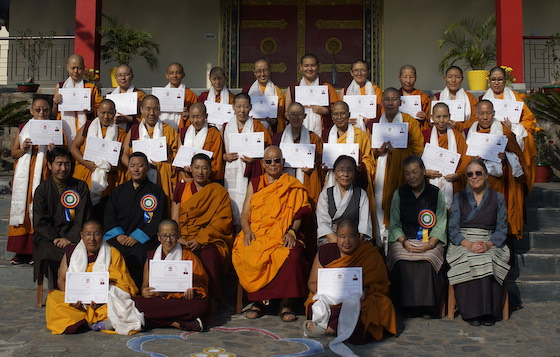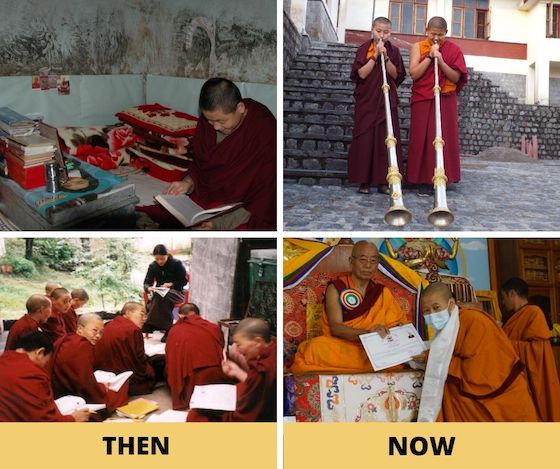On February 18th, 2026, the first day of the Tibetan New Year, Shugsep Nunnery and Institute will hold its first-ever Khenmo Enthronement Ceremony. A total of 19 nuns will be enthroned as Khenmo, making this a historic milestone for the nunnery.
Shugsep Nunnery follows the education system of Namdroling Monastery and Namdroling Nunnery. Namdroling Nunnery held its first Khenmo enthronement in 2022. Following the same tradition and system, Shugsep Nunnery will now celebrate its own first Khenmo enthronement this year.
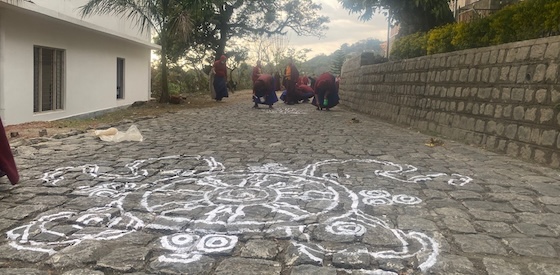
The nuns paint sacred Buddhist symbols to welcome Khenchen Pema Sherab Rinpoche, the chief guest of the upcoming Khenmo Enthronement.
What is a Khenmo?
A Khenmo is the highest scholarly and teaching title for nuns in the Nyingma tradition of Tibetan Buddhism. It is equivalent to the Khenpo title given to monks. To become eligible for Khenmo:
- A nun must complete nine years of rigorous Buddhist studies.
- She has received the Loponma degree, equivalent to a Master’s degree.
- After this, she must serve the nunnery for at least four years.
- Service includes teaching, administration, guiding students, or other responsibilities.
- She must maintain pure discipline, with no record of serious violations.
Unlike the Geshema degree, there is no written examination for the Khenmo title. Eligibility is based on education, years of service, leadership, and moral conduct.
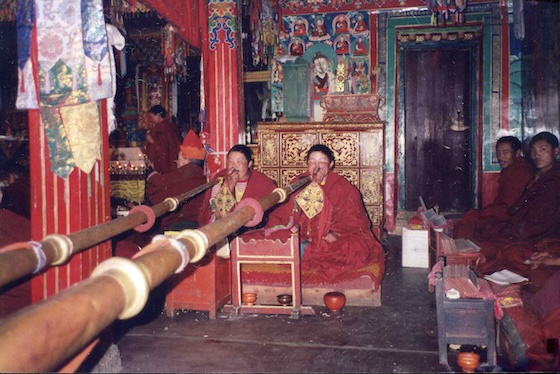
A photo from Shugsep Nunnery in Tibet in 1998. After many Shugsep nuns escaped to India in the 1990s, the nunnery was re-established by the Tibetan Nuns Project near Dharamsala. Photo by Julie Brittain.
The 19 nuns being enthroned this year completed their Loponma studies between 2004 and 2022. Since then, they have fulfilled their required years of service: Some have taught Buddhist texts, some have managed administrative duties, some have guided study and revision programs for junior nuns.
Why This System is New for Nuns
Traditionally, only monks were enthroned as Khenpo. This was because the full nun ordination lineage (Gelongma) was not historically present in Tibet. Without full ordination, nuns could not receive the same monastic titles.
In recent decades, Tibetan Buddhist leaders recognized this historical gap and created a new system. Instead of requiring full Gelongma ordination, nuns who complete higher studies and long-term service can now be enthroned as Khenmo. This change opened the door for nuns to receive equal recognition as scholars and spiritual leaders.
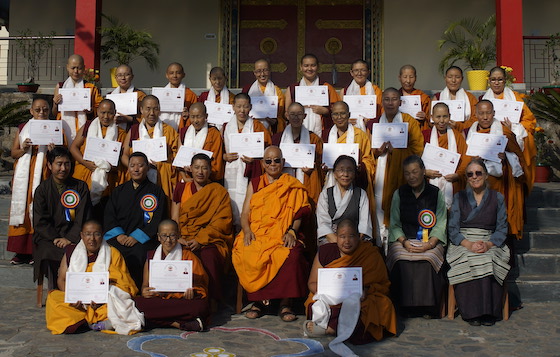
On October 28 2022, Shugsep Nunnery and Institute held an important graduation ceremony in which Pharchin, Uma, and Lopon nuns were given their graduation certificates. As of 2023, 49 Shugsep nuns had attained the Lopon degree, equivalent to a Master’s degree – a remarkable achievement given the many obstacles on their path.
The Enthronement Ceremony
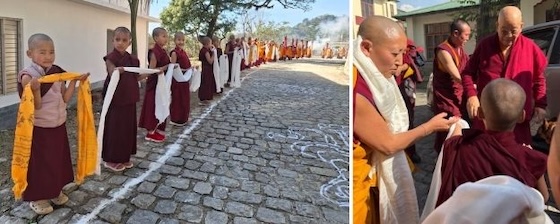
On January 29th, the Shugsep nuns welcomed Khenchen Pema Sherab Rinpoche, the chief guest of the upcoming Khenmo Enthronement. They presented him with kataks, the Tibetan white scarves given as a sign of respect.
The ceremony will be led by Khenchen Pema Sherab Rinpoche, who will serve as the chief guest and main preceptor for the enthronement. The event will include:
- Traditional ritual prayers
- White scarf (katak) offering ceremony
- Attendance by dignitaries from monasteries, nunneries, and government departments
- Each newly enthroned Khenmo will receive traditional gifts, including:
- A ceremonial hat
- A small Buddha statue
- A pair of ritual vases
- A mandala offering set
- A container for the “three whites and three sweets”
- A ritual bell and vajra
- A new set of monastic robes
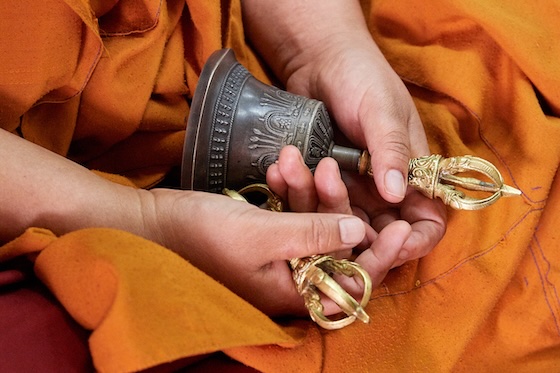
A Tibetan Buddhist nun holds a traditional bell and vajra (dorje), essential Tibetan Buddhist ritual items representing the inseparable union of wisdom and compassion. Photo by Olivier Adam.
Responsibilities After Enthronement
At present, there will be no replacement involved in this Khenmo enthronement. According to the nunnery’s administration, this ceremony is not filling a vacant position or replacing an existing Khenpo.
After receiving the Khenmo title, the nuns will take on greater responsibilities:
- Some will continue teaching advanced Buddhist studies.
- Some will lead administrative management of the nunnery.
- Some will enter long-term retreat.
- During major events, Khenmos will represent Shugsep Nunnery in religious gatherings and official functions.
- Some will train for the research center.
Their role is not only scholarly, but also leadership and representation.
Impact on the Nunnery
This Khenmo enthronement will:
- Strengthen leadership among nuns.
- Raise educational standards in the nunnery.
- Ensure self-sufficiency in teaching and training.
- Inspire younger nuns to pursue higher studies.
- Promote gender equality in Tibetan Buddhism.
Ani Ugyen Dolma
Ani Ugyen Dolma is a senior nun in her 50s, originally from Tibet. She belongs to Shugsep Nunnery in Tibet and was among the very first group of nuns to arrive in Shugsep Nunnery in India. She is one of the nuns who will be enthroned in February 2026.
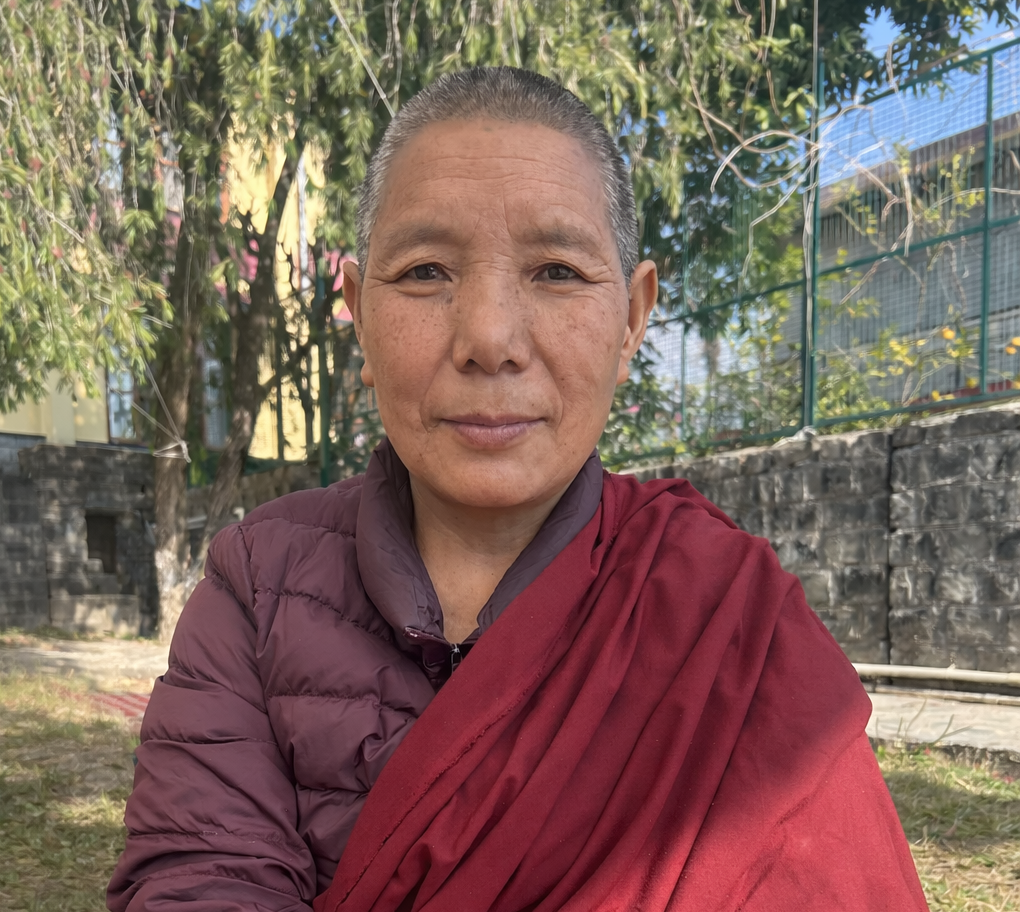
Ani Ugyen Dolma is one of the nuns at Shugsep who will be enthroned as khenmo on February 18, 2026.
She first arrived in India in 1990, as part of the first batch of 22 nuns who came from Tibet to the new Shugsep Nunnery in exile. Since then, she has remained continuously involved in the growth and development of the nunnery, from its earliest days to the present.
In 2004, Ani Ugyen Dolma completed her Loponma degree, becoming part of the first-ever Loponma graduating batch at Shugsep Nunnery. That historic batch included eight nuns, marking the beginning of advanced Buddhist scholastic education for nuns at Shugsep.
From 2010 to 2017, she served as the Director of Shugsep Nunnery, taking responsibility for the administration, discipline, and overall management of the community.
After the nunnery later invited a Khenpo to strengthen higher Buddhist education in the nunnery, Ani Ugyen Dolma focused mainly on teaching and academic guidance. She has been:
- Teaching Buddhist scriptures and philosophy
- Guiding the studies of junior nuns
- Supporting examination preparation and study programs
- She continues to serve in this teaching role today.
Currently, Ani Ugyen Dolma is preparing to receive the Khenmo title in the upcoming enthronement ceremony. After enthronement, she plans either to enter a period of spiritual retreat or continue teaching and guiding nuns at Shugsep.
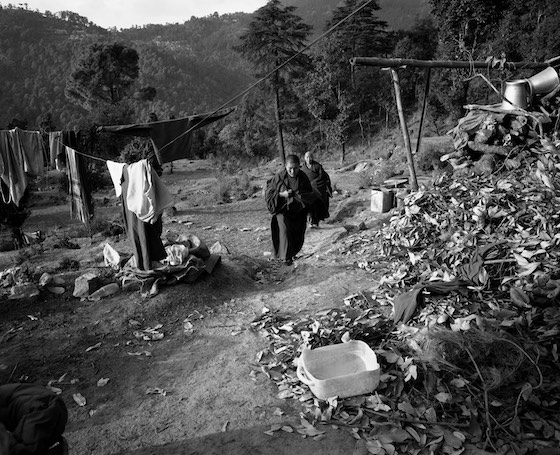
The Shugsep nuns story is one of perseverance, dedication, and hope. Many Shugsep nuns escaped from Tibet with nothing, not knowing how to read and write, traumatized in the prisons, beaten by the prison guards, and with many health problems. Shugsep Nunnery was re-established by the Tibetan Nuns Project in India. Photo of refugee nuns in 1991 by Susan Lirakis.

